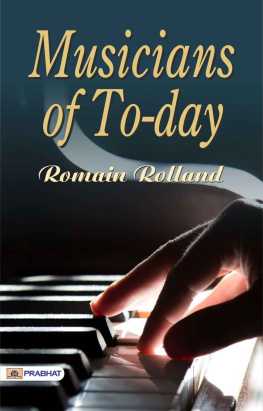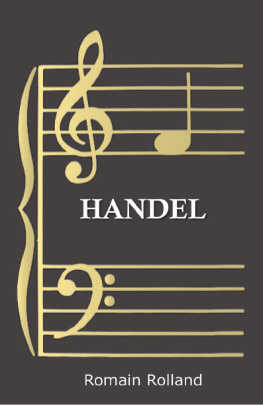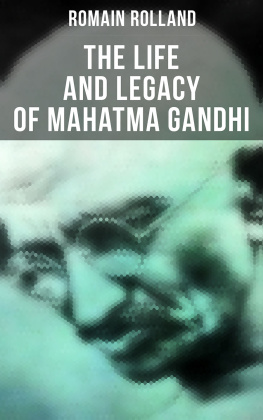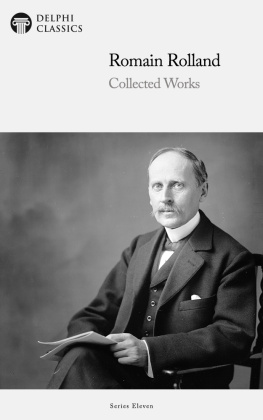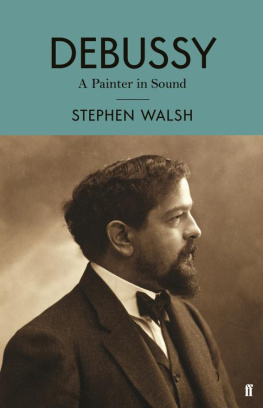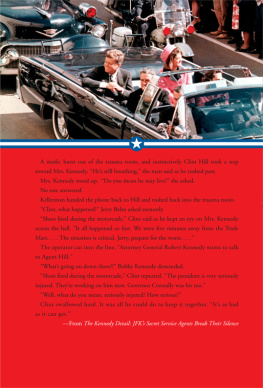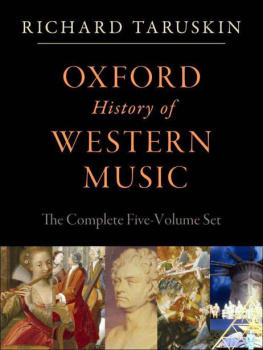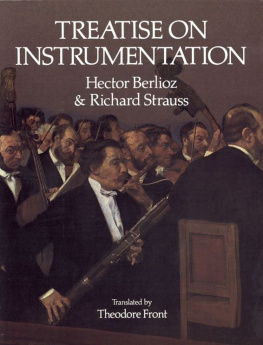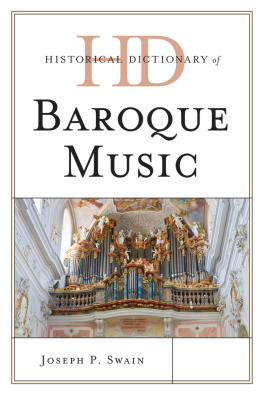MUSICIANS OF TO-DAY
ROMAIN ROLLAND

INTRODUCTION
It is perhaps fitting that the series of volumes comprising The Musician's Bookshelf should be inaugurated by the present collection of essays. To the majority of English readers the name of that strange and forceful personality, Romain Rolland, is known only through his magnificent, intimate record of an artist's life and aspirations, embracing ten volumes, Jean-Christophe. This is not the place in which to discuss that masterpiece. A few biographical facts concerning the author may not, however, be out of place here.
Romain Rolland is forty-eight years old. He was born on January 29, 1866, at Clamecy (Nivre), France. He came very early under the influence of Tolstoy and Wagner and displayed a remarkable critical faculty. In 1895 (at the age of twenty-nine) we find him awarded the coveted Grand Prix of the Acadmie Franaise for his work Histoire de l'Opra en Europe avant Lulli et Scarlatti, and in the same year he sustained, before the faculty of the Sorbonnewhere he now occupies the chair of musical criticisma remarkable dissertation on The Origin ofthe Modern Lyrical Dramahis thesis for the Doctorate. This, in reality, is a vehement protest against the indifference for the Art of Music which, up to that time, had always been displayed by the University. In 1903 he published a remarkable Life of Beethoven, followed by a Life of Hugo Wolf in 1905. The present volume, together with its companion, Musiciens d'Autrefois, appeared in 1908. Both form remarkable essays and reveal a consummate and most intimate knowledge of the life and works of our great contemporaries. A just estimate of a composer's work is not to be arrived at without a study of his works and of the conditions under which these were produced. To take, for instance, the case of but one of the composers treated in this volume, Hector Berlioz. No composer has been so misunderstood, so vilified as he, simply because those who have written about him, either wilfully or through ignorance, have grossly misrepresented him.
The essay on Berlioz, in the present volume, reveals a true insight into the personality of this unfortunate and great artist, and removes any false misconceptions which unsympathetic and superficial handling may have engendered. Indeed, the same introspective faculty is displayed in all the other essays which form this volume, which, it is believed, will prove of the greatest value not only to the professional student, but also to the intelligent listener, for whom the present series of volumes has been primarily planned. We hear much, nowadays, of the value of "Musical Appreciation." It is high time that something was done to educate our audiences and to dispel the hitherto prevalent fallacy that Music need not be regarded seriously. We do not want more creative artists, more executants; the world is full of themgood, bad and indifferentbut we do want more intelligent listeners.
I do not think it is an exaggeration to assert that the majority of listeners at a high-class concert or recital are absolutely bored. How can it be otherwise, when the composers represented are mere names to them? Why should the general public appreciate a Bach fugue, an intricate symphony or a piece of chamber-music? Do we professional musicians appreciate the technique of a wonderful piece of sculpture, of an equally wonderful feat of engineering or even of a miraculous surgical operation? It may be argued that an analogy between sculpture, engineering, surgery and music is absurd, because the three former do not appeal to the masses in the same manner as music does. Precisely: it is because of this universal appeal on the part of music that the public should be educated to listen to good music; that they should be given, in a general way, a chance to acquaint themselves with the laws underlying the "Beautiful in Music" and should be shown the demands which a right appreciation of the Art makes upon the Intellect and the Emotions.
And, surely, such a "desideratum" may best be effected by a careful perusal of the manuals to be included in the present series. It is incontestable that the reader of the following pagesapart from a knowledge of the various musical forms, of orchestration, etc.all of which will be duly treated in successive volumeswill be in a better position to appreciate the works of the several composers to which he may be privileged to listen. The last essay, especially, will be read with interest to-day, when we may hope to look forward to a cessation of race-hatred and distrust, and to what a writer in the Musical Times(September, 1914) has called, "a new sense of the emotional solidarity of mankind. From that sense alone," he adds, "can the real music of the future be born."
CLAUDE LANDI.
BERLIOZ
I
It may seem a paradox to say that no musician is so little known as Berlioz. The world thinks it knows him. A noisy fame surrounds his person and his work. Musical Europe has celebrated his centenary. Germany disputes with France the glory of having nurtured and shaped his genius. Russia, whose triumphal reception consoled him for the indifference and enmity of Paris, has said, through the voice of Balakirew, that he was "the only musician France possessed." His chief compositions are often played at concerts; and some of them have the rare quality of appealing both to the cultured and the crowd; a few have even reached great popularity. Works have been dedicated to him, and he himself has been described and criticised by many writers. He is popular even to his face; for his face, like his music, was so striking and singular that it seemed to show you his character at a glance. No clouds hide his mind and its creations, which, unlike Wagner's, need no initia tion to be understood; they seem to have no hidden meaning, no subtle mystery; one is instantly their friend or their enemy, for the first impression is a lasting one.
That is the worst of it; people imagine that they understand Berlioz with so very little trouble. Obscurity of meaning may harm an artist less than a seeming transparency; to be shrouded in mist may mean remaining long misunderstood, but those who wish to understand will at least be thorough in their search for the truth. It is not always realised how depth and complexity may exist in a work of clear design and strong contrastsin the obvious genius of some great Italian of the Renaissance as much as in the troubled heart of a Rembrandt and the twilight of the North.
That is the first pitfall; but there are many more that will beset us in the attempt to understand Berlioz. To get at the man himself one must break down a wall of prejudice and pedantry, of convention and intellectual snobbery. In short, one must shake off nearly all current ideas about his work if one wishes to extricate it from the dust that has drifted about it for half a century.
Above all, one must not make the mistake of contrasting Berlioz with Wagner, either by sacrificing Berlioz to that Germanic Odin, or by forcibly trying to reconcile one to the other. For there are some who condemn Berlioz in the name of Wagner's theories; and others who, not liking the sacrifice, seek to make him a forerunner of Wagner, or kind of elder brother, whose mission was to clear a way and prepare a road for a genius greater than his own. Nothing is falser. To understand Berlioz one must shake off the hypnotic influence of Bayreuth. Though Wagner may have learnt something from Berlioz, the two composers have nothing in common; their genius and their art are absolutely opposed; each one has ploughed his furrow in a different field.
Next page
